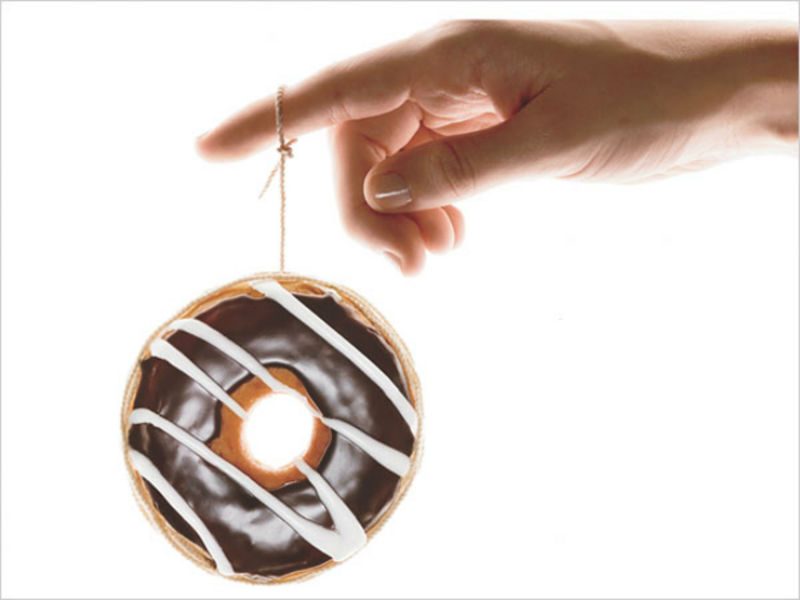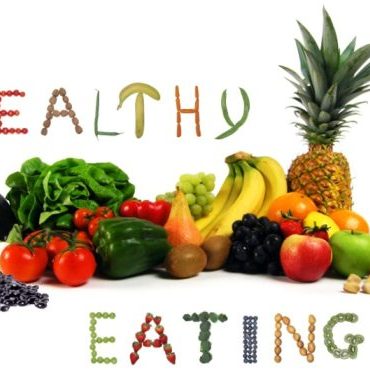 Ever wonder why you don’t crave fruits? Arlene has the answer for you!
Ever wonder why you don’t crave fruits? Arlene has the answer for you!
Sometimes I get major cravings for sweets and eat half a box of low-fat biscuits. How come I never get cravings for apples or bananas?
Cravings usually come from being hungry, so snack regularly and don’t skip meals. If you avoid becoming ravenous, you have more restraint. Make sure your meals and snacks contain some protein and fat, which take longer to digest than carbohydrates and therefore help you feel satisfied for longer.
You might also be turning to sweets because they are so readily available. Maintain a supply of fruit, cut-up veggies, and wholemeal bread – and keep biscuits out of the house until you change your eating habits. For now, if you really want a biscuit or a piece of cake, create a situation where you will need to go out and get it. Bananas and apples may seem less appealing to you than processed sweets partly because you are not accustomed to eating fresh fruit. If you gradually cut back on added sugar you may eventually find that a peach or an apple hits the spot. Try this: Next time a craving hits, eat a piece of fruit. Eventually, this will become a habit – and you are treating your body to fibre, vitamins, minerals and phytochemicals in the process.
I am 21 years old, 167cm tall, and I weigh 75kg. I have struggled with anorexia and binge eating for many years. Now my main problem is cellulite on my bottom and thighs. When I see myself in the mirror, I just want to starve myself. I just cannot live that life again – it is so scary! I run 45 minutes every day, and do sit-ups until I cannot do another one. What can I do about the fat on my body?
My first advice is to seek out a psychologist who specialises in eating disorders because I am not an expert in that area. In terms of food, all you have to do is eat sensibly. Despite you thinking that fat and cellulite are your biggest problems, your priority should be overcoming your negative body image. Commit to not starving yourself, moderate exercise, and find out what are your driving obsessions. Attempt to balance your life, and enjoy every day without focusing on food and your body. Eating disorders are never just about food and fat.
If burning calories is the way to lose weight, and all calories are equal, why is it important to stay away from fat if you are just limiting the number of calories you are eating every day?
Nutrition should be foremost in your mind when thinking about what to eat. The weight control can be focused on within the context of eating a healthy diet. The food choices you make can affect your health, energy levels, exercise performance, and concentration. There is no need to “stay away” from high-fat foods. Any food can be eaten in a healthy diet, provided you control the portion sizes and remember the word moderation.
It is important to distinguish between healthy fats and harmful fats. Olive oil, for instance, is 100% fat, however, it is mostly monounsaturated fat, which is the healthy fat prevalent in the Mediterranean diet. However, fat is calorie-dense – 9 calories per gram, so you must be aware of how much you consume. You should try and limit your intake of foods high in saturated fats and trans fats, the artery-clogging fats that increase your risk of heart disease. Saturated fats are found primarily in animal products such as meat, cheese and whole milk. Trans fats are found in fried foods and commercial baked goods. Many high-fat foods – even nutritious ones like avocados – are high in calories and not especially satisfying because you are not getting a lot of fibre or volume.
I am 29 years old and I am 168cm tall. Ten years ago I weighed 90kg, and I lost considerable weight through exercise. I am getting married in 6 months time and want to weigh 60-62kg for my wedding, but my weight is stuck at 70kg. I do 30 minutes of cardio exercise and 30 minutes of weight training three to four times a week. What can I do differently to reach my goal?
You have done exceptionally well in losing 20kg and maintaining that loss. You have a Body Mass Index of 24.8, which is within the normal range (normal 20-25). Your goal weight may be unrealistic for your body type. The fact that you have maintained your 20kg weight loss for so long suggests that you have found a comfortable weight, and your body may resist attempts to lose more. Muscle weighs more than fat, so pay more attention to your dress size than to your weight. Try and forget about the numbers on the scale and take your measurements instead. You can gradually increase your cardio exercise so that you are doing 45 minutes five days a week. You may want to reduce your calorie intake by 200 calories per day – eat smaller dinners, but do not go on a crash diet, as many brides-to-be do. Planning a wedding can be stressful; you want to have the energy to enjoy the whole function.
 My friend went on a low carb diet, did absolutely no exercise and lost 10kg in four months. I watch my carbs and I walk three to four days a week but have not lost any weight, why not?
My friend went on a low carb diet, did absolutely no exercise and lost 10kg in four months. I watch my carbs and I walk three to four days a week but have not lost any weight, why not?
Your friend has lost weight quickly on the low carb diet as she is severely restricting her calorie intake. You are probably consuming more calories than your friend. Perhaps your portion sizes need reviewing? Most people who go on restrictive diets eventually regain weight – particularly if they are doing no exercise.
A ‘diet’ is an artificial way of eating. Once people go off the plan, which is normally not a realistic eating pattern, they usually resume old eating patterns and regain weight. Losing weight without exercise is not an advisable strategy. You tend to lose muscle along with fat, so your metabolism slows down.
To help you lose weight, add two days a week of strength training to boost your metabolism or at least preserve your muscle mass as you lose weight. To burn extra calories, add an extra day or two of walking to your current program. Carbohydrates such as whole grains, fruits and vegetables, and legumes are important for maintaining good health and fuelling exercise – but watch portion size!
I am an active person but still struggle with my weight. It is the holidays now, so I am out most days with my friends. They seem to eat so much compared to me, and yet I am fat and they are thin. I desperately want to lose weight. Can you tell me what I am doing wrong?
Never assume you know everything that your friends are eating. They might eat when they are with you, and then consume very little at other times. Thin people generally eat to appetite. If you look at certain of your friends they might eat a large amount during the day, but keep dinners small. In addition, genes do play a role in determining your metabolic rate. Certain people have faster metabolisms than others and can keep their trim figures with very little effort. Others do more exercise, or fidget more, allowing them to eat extra-large portions. There are so many variations in determining your weight, but the one equation that remains constant for everyone is that your weight is established by the difference in the intake of calories versus the expenditure. You might think you are active, but perhaps your exercise is not sufficient to result in a negative energy balance compared to your food intake. I suggest you reduce your portion sizes and increase your exercise regime – you should definitely see a weight drop!

